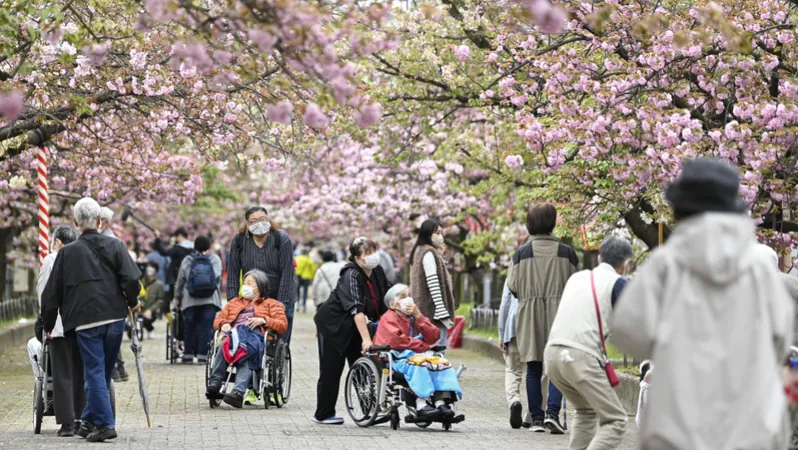
A Grim Future for Lifespan: Significant Radial Extension Unlikely in 21st Century, Study Reveals
2024-10-14
Author: Yu
A recent study from a team at the University of Illinois has presented a sobering conclusion: the radical extension of human lifespan, once a tantalizing prospect, is unlikely to occur in this century. This research, published in the reputable scientific journal Nature Aging, highlights a concerning trend in life expectancy growth, especially in nations known for their longevity, such as Japan.
The analysis indicates that by the century's end, only about 15% of women and 5% of men are projected to reach the age of 100. The research encompassed data from eight countries with the highest life expectancies, including South Korea and Switzerland, and the findings reveal that from 1990 to 2019, life expectancy only increased by an average of 6.5 years.
Historically, the 20th century witnessed a remarkable rise in life expectancy—an increase of around three years per decade—primarily due to advancements in sanitation and medicine, which drastically reduced infant mortality rates and improved health outcomes for older adults. However, over the past 30 years, this growth has begun to stagnate, sparking concerns among researchers.
The study developed composite mortality schedules, leveraging the lowest global mortality rates by age and gender. The results show that individuals born in 2019 can expect to live, on average, 88.68 years if female and 83.17 years if male, with survival probabilities to age 100 resting at approximately 13.9% for women and just 4.5% for men.
For humanity to achieve a second wave of radical life extension where life expectancy at birth approaches 110 years, the study concludes that around 70% of women would need to reach the century mark. Achieving this milestone would require the eradication of the majority of current causes of death, a feat that seems implausible given our present understanding of biological aging.
The Japanese government has confirmed these trends, reporting that in 2023, average life expectancy in Japan stands at 87.14 years for women and 81.09 years for men. A record 95,119 centenarians were documented in Japan this September, with women representing a staggering 88.3% of this population.
While the future may appear bleak in terms of extending human lifespans, it also serves as a reminder of the need for continued investments in healthcare, research, and innovative public health strategies. As we advance further into the 21st century, the quest for healthier, longer lives continues, though the path may not lead to the radical transformations once envisioned.
Stay tuned for further research developments; this is just the beginning of a critical conversation about our future!



 Brasil (PT)
Brasil (PT)
 Canada (EN)
Canada (EN)
 Chile (ES)
Chile (ES)
 España (ES)
España (ES)
 France (FR)
France (FR)
 Hong Kong (EN)
Hong Kong (EN)
 Italia (IT)
Italia (IT)
 日本 (JA)
日本 (JA)
 Magyarország (HU)
Magyarország (HU)
 Norge (NO)
Norge (NO)
 Polska (PL)
Polska (PL)
 Schweiz (DE)
Schweiz (DE)
 Singapore (EN)
Singapore (EN)
 Sverige (SV)
Sverige (SV)
 Suomi (FI)
Suomi (FI)
 Türkiye (TR)
Türkiye (TR)